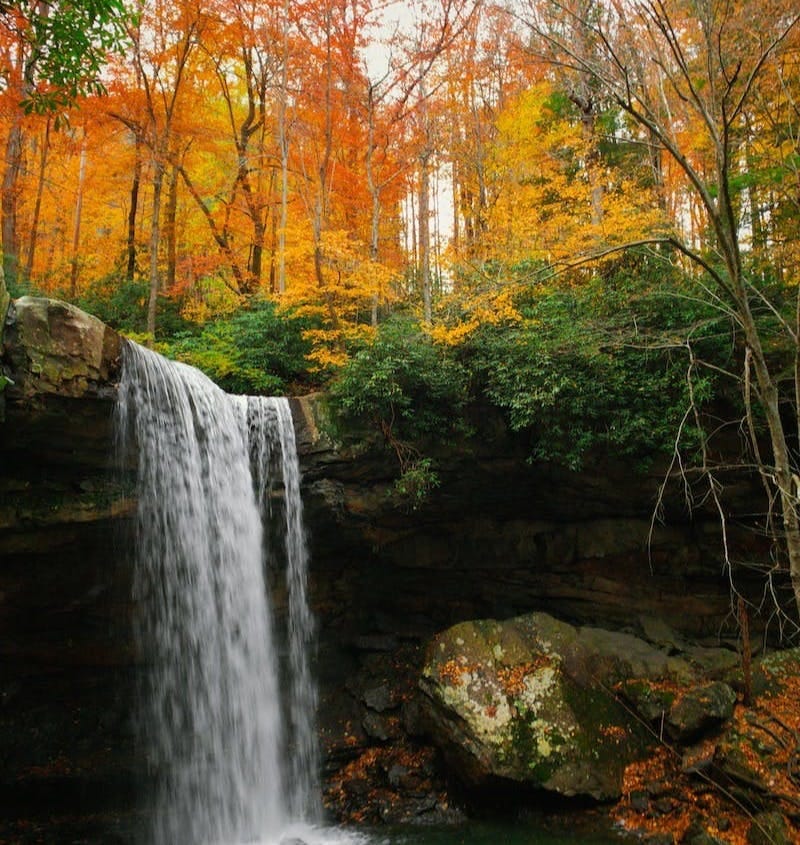The Human Fire 1.25 - Discovering the Art of Life
The need for a "periodic table of human experience"
Fall has finally arrived in New England, though the leaves here turned a little late this season. This time of year possesses such sensory delights: the bright, crisp morning air; vibrant reds and oranges and golds to see; the scents of apple and cinnamon. It's the kind of season that makes me want to settle down in a cozy chair with a warm beverage and a good book and not move for hours.
Yet that seems a luxury, these days. The news coming out of the Middle East in the past week has unsettled the world. Sitting and sipping and reading feels like a great gift, a privilege for someone like me who has never known war and displacement.
I heard one analyst describe the attacks of last Saturday as "Israel's 9/11" - remarking on the proportion and visibility of their loss as having a similar effect. I think that's accurate. It reminded me, so many years ago, of my own response to that American tragedy, and how that event has shaped my teaching and professional pursuits of the last two decades.
With this background in mind, I want to offer a preview of what The Human Fire will be featuring in coming weeks. Since I began writing almost a year ago, I've tried to offer something I had been longing for: a regular dose of encouragement, challenge, and insight, that's also a pleasure to read. I hope you have experienced this in your reading. And now I wish to be even more explicit, and intentional, about where this newsletter is headed.
Ten years ago while teaching at Deerfield Academy, I created a course called "The Art of Life." Designed as a kind of senior capstone, I took my students through the most influential ways of understanding what a human being is from our collective history. Following that, I unveiled my own framework for ethical development - The Art of Life Framework™ - that I hoped might guide them in shaping their own art of life. That sharing, and the experience my students and I created in that spring classroom, is something I've spent the last decade building on, refining, testing, and troubleshooting.
The idea that there is an art to life is a centuries-old idea. It's not about finding the "one true way," as if human living could be reduced to just one thing. But it is about finding ways that work better, even best, in certain circumstances of our experience.
In my own life, I spent years studying the great philosophical, spiritual, and political ideas of human cultures, their transmission over time, their evolutions and deformations. I did this, though, not as a disinterested scholar, but as someone in search of wisdom from the past. In that pursuit I began to notice that humanity's greatest ideas always expressed something truly essential or insightful about being human. Aristotle conveyed how virtue is formed by habit; Bentham elevated the centrality of pleasure and pain as motivators of behavior; Kierkegaard showed how loneliness sets the parameters for our experience as finite creatures.
Where the great ideas of the past tended to break down, I saw, was the moment at which they were made to bear the whole of human experience. Habit, pleasure, loneliness - these all capture something essential to the art of life. But none of them can capture it all. Why did - and do - we continue to try to make one idea into everything?
One idea makes a poor container for the entirety of the human condition. But what if these ideas that shaped centuries, that endured through diverse cultures and expressions, were thought of more as discoveries? And over time, as human beings discovered more about ourselves, might we be able to look anew at these ideas and fit them together in such a way that we could guide our experience better?
There was a time, if you recall, when chemistry had no periodic table. Several of the chemical elements of life were known for centuries, of course. But it wasn't until the 19th century that their relationships were properly sorted out. And it revolutionized the study of chemistry - and modern life.
What if the same were true of the essential elements of human experience?
I believe that is true, and that we need a "periodic table of human experience." My pursuit of the art of life arose as an attempt to do just that: to bring together, across time and geography and cultural difference, the most enduring elements of what it means to be human, show how they relate to each other, and how they can guide us. It's time now for me to share this more widely, which will happen through essays I'll be publishing in the coming weeks, as well as here in this newsletter.
You, dear reader, have already gotten a glimpse of The Art of Life Framework™ here in The Human Fire. Though I wasn't explicit about why I chose the topics I did, issues 1.9-1.18, and 1.21, all spoke to specific elements of the framework that were unified by the aim of "harmony." The next ten issues will continue to unveil further elements, elaborating on the aim of "possibility."
I hope you will find this pursuit enlightening, and that it will deepen your own practice of the art of life. Next week I'll resume the regular "oxygen-fuel-heat" format as we explore the element of education.
A couple of practical updates to share with you:
I have joined the writing website Substack. If you're on there, I'd love for you to follow me (The Human Fire | Chad Smith | Substack).
If you like The Human Fire and want to help me continue to provide a spark to the human spirit, I've set up a tip jar for you to offer your financial support, should you be so inclined.
Until next week, I'll see you down the path.
Chad








I like the idea, although I think you’re mixing metaphors haha. If there is a periodic table of life, that means it’s a hard science, like chemistry. But you also explicitly call it the ART of life. Perhaps there’s something in between like music, which is both an art and a science: notes and chords are measured by specific frequencies and ratios, their proper sequences have all been mapped out and popularized based on which sound of the most pleasing to us, and yet the entire catalog of music is infinite.
The best part of this analogy is that lay people have access to music (whereas chemistry is difficult to understand, and therefore, sometimes alienating) and while a study of music is not necessary for anyone, it is truly enriching of one’s appreciation of the field.
Perhaps what you’re trying to create is a musical scale of life, with loneliness and anger being the notes, habit being the melody, and philosophy being the time signature. I don’t know exactly, but you get the idea. Haha.
This is not meant to be a criticism, but I’m just toying with the idea, which I think is a great one
That is a very neat idea of having a period table of human experience. I think your finger is on the pulse of the human experience today, as we watch the end days of a society that has tried to unitize the human experience into GDP input and outputs without weighing the non monetary consequences.